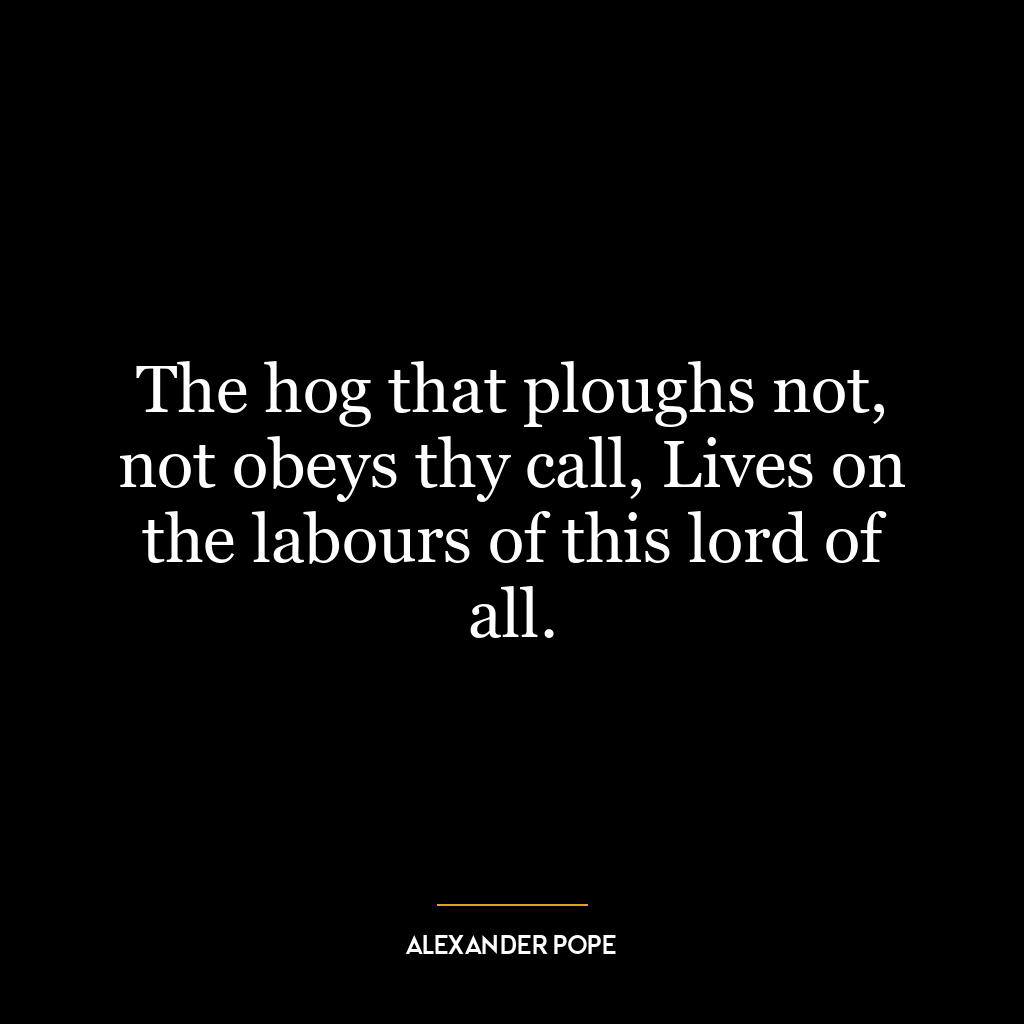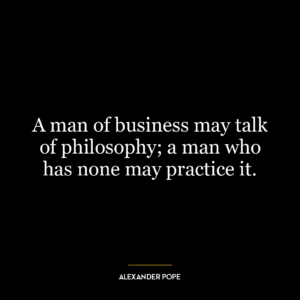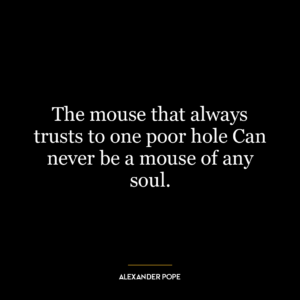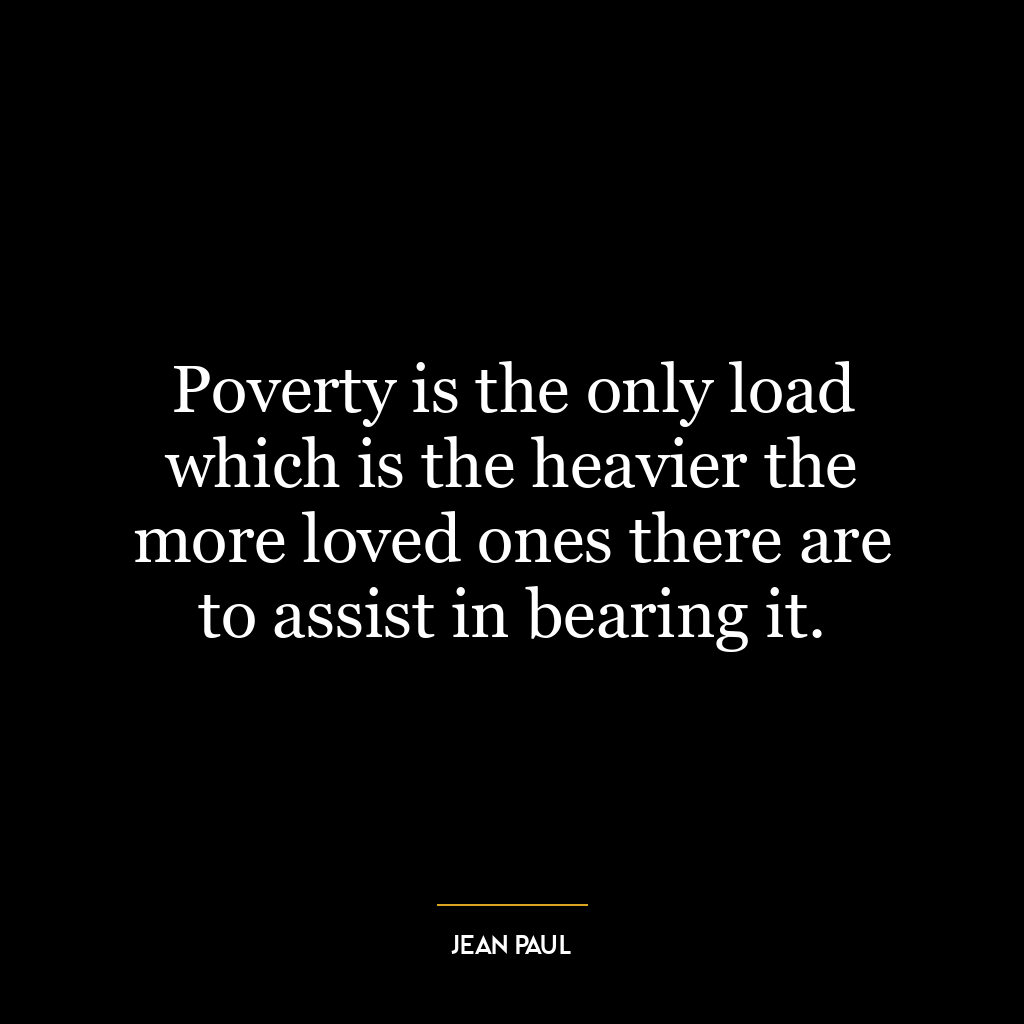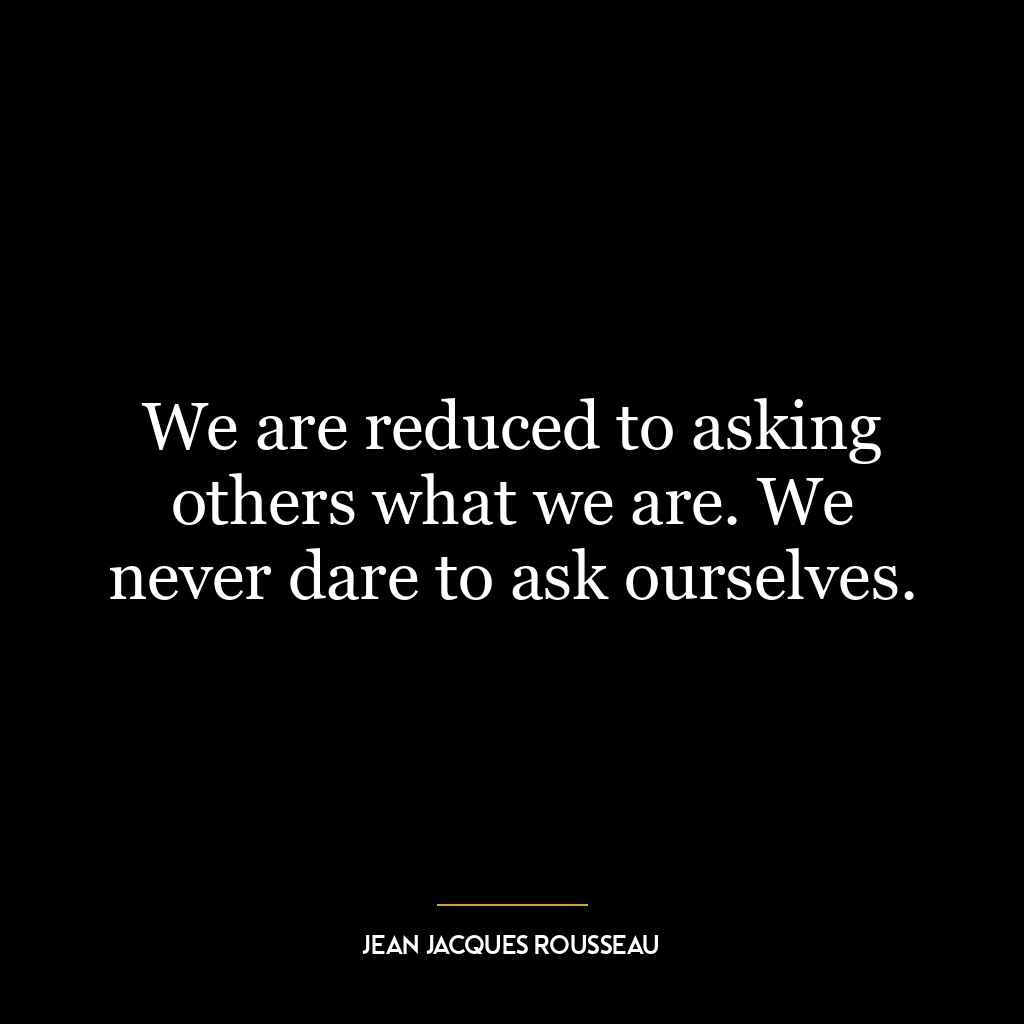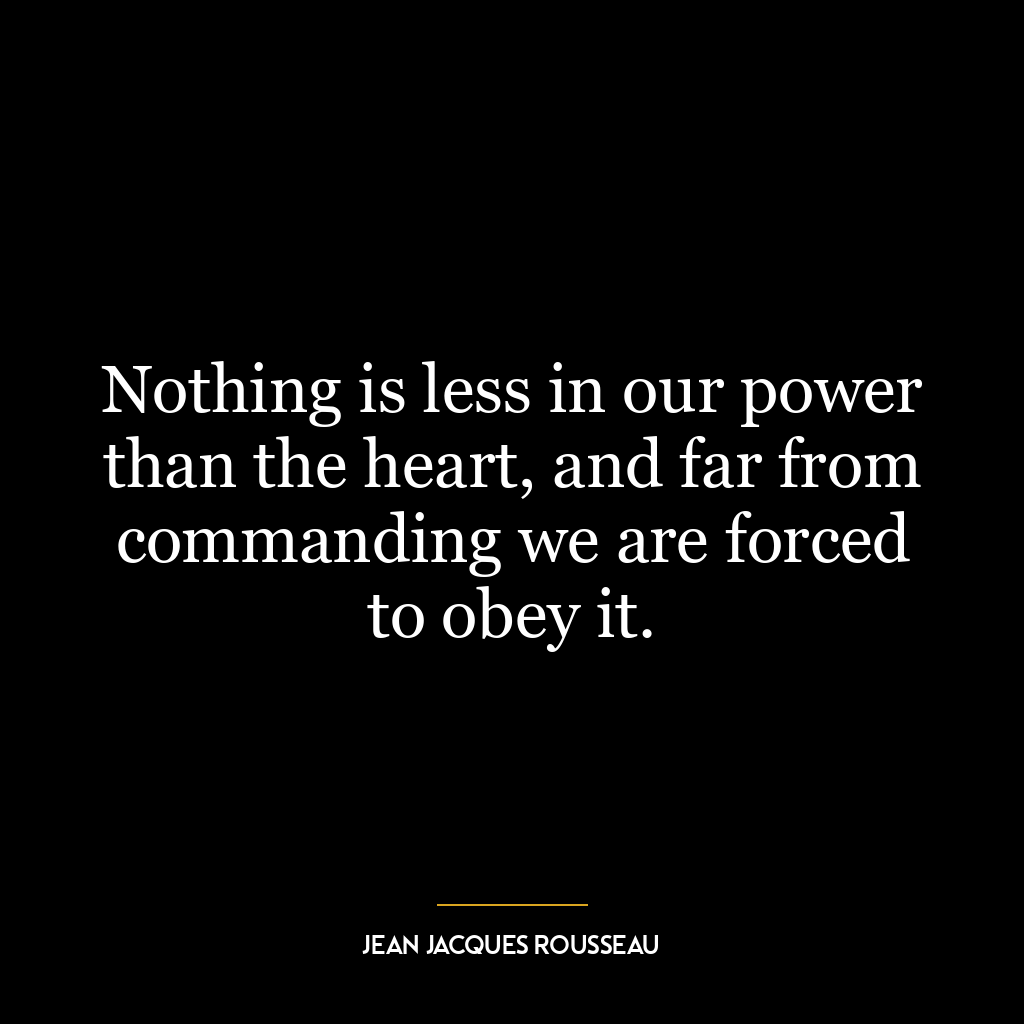This quote is a metaphorical expression of the idea that those who do not contribute to work or society, yet still benefit from it, are essentially living off the efforts of others. The ‘hog’ in this context represents individuals who refuse to participate or contribute, yet still reap the benefits of the hard work of others. The ‘lord of all’ refers to the collective efforts of those who do work and contribute to society.
This quote underscores the importance of personal responsibility and the concept of earning one’s keep. It promotes the idea that everyone should contribute to the best of their ability to the overall functioning of society.
In today’s world, this quote can be applied in many ways. In a work setting, for example, it could refer to employees who do not pull their weight, yet still benefit from the success of the company. In a societal context, it could refer to those who take advantage of welfare systems without genuinely needing them or making efforts to become self-sufficient.
In terms of personal development, this quote can serve as a reminder of the importance of hard work, contribution, and earning one’s own way. It can inspire individuals to strive to be more proactive, productive, and responsible, and to recognize the value of their contributions to their community or society. It also encourages individuals to be accountable for their actions and to avoid depending on others for their well-being and success.

